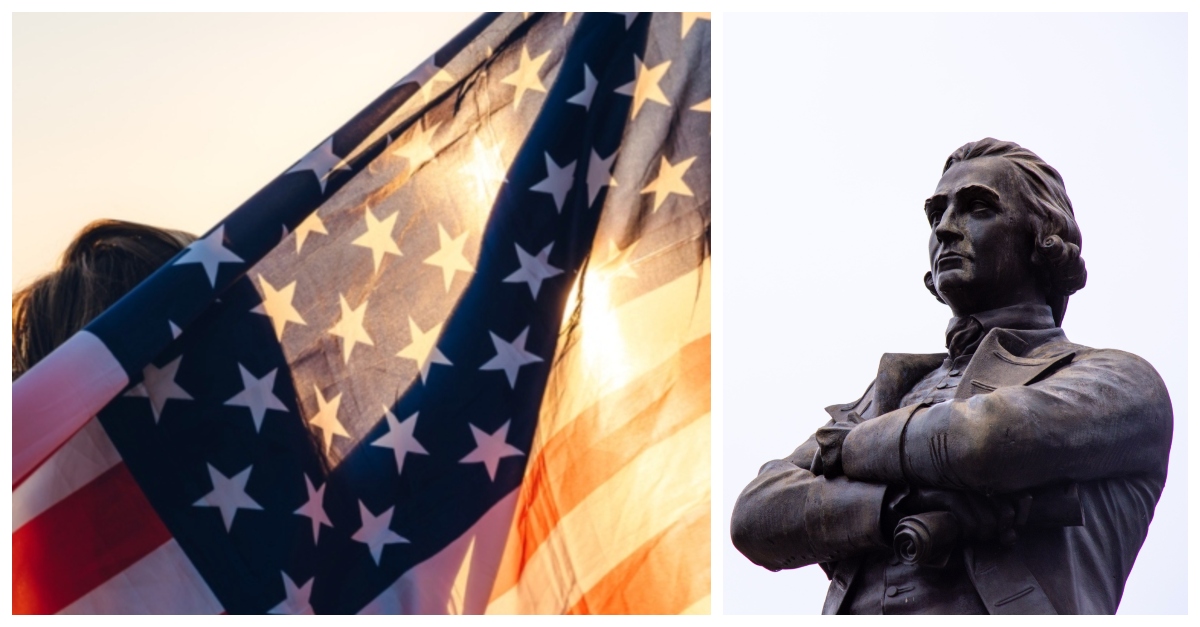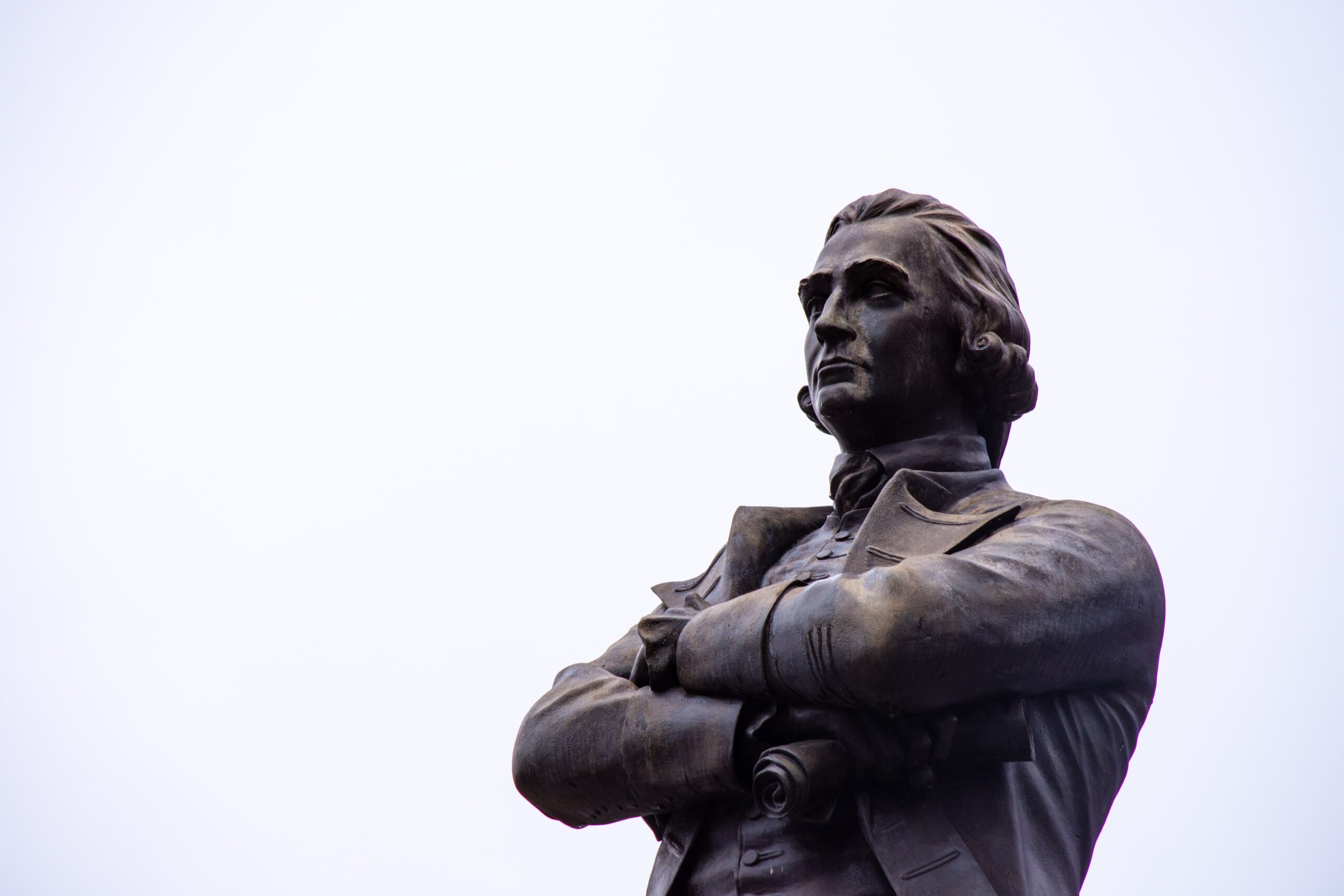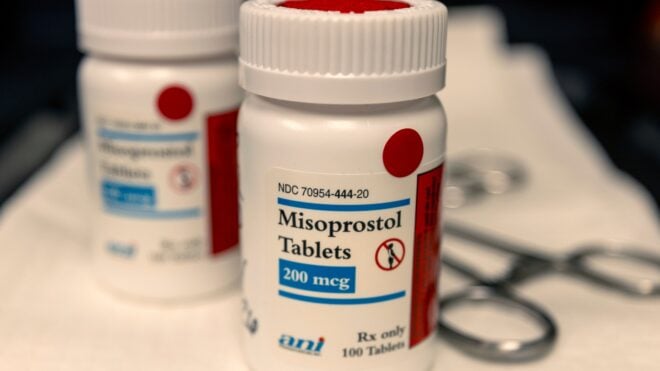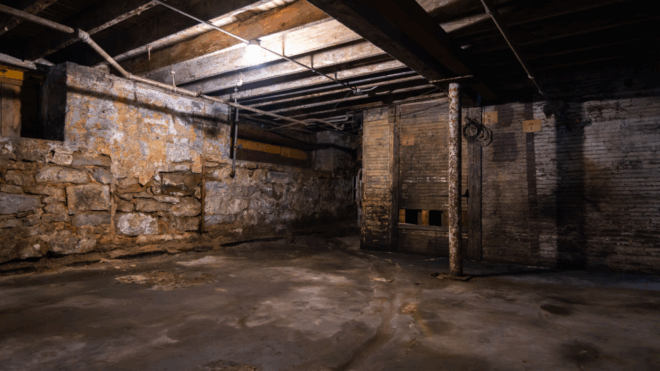
If you grew up in the United States, there are probably some things that you have always believed to be true, simply because they are part of the mythos that Americans perpetuate. One of our biggest celebrations, Independence Day, definitely has its own stories that have been exaggerated — or even outright lies that have been completely fabricated — about both its origins and the traditions that the holiday upholds and celebrates.
Each year, millions of Americans observe the Fourth of July, or Independence Day. Those celebrations usually include fireworks, maybe a pool if you're lucky, and family gatherings. When I was growing up, they also included lightning bugs and country music playing late and loud while all the kids ran around in the front yard and the adults drank and sang along. Romantic, right?
But what is Independence Day really about? What are the events that led to the first Independence Day in 1776? These are two questions I never really asked myself until I had a kid and realized that a lot of the history we're taught in American schools is made up of half-truths at best.
At its core, Independence Day is about the rebellion that the 13 American Colonies launched against King George III. The rebellion culminated in a victory for the Colonies, and the Declaration of Independence was issued on July 2, 1776. We observe Independence Day on July 4 because that's when the declaration was officially finalized.
But the reality of America in 1776 is that only a portion of the population — namely wealthy white male property owners and legislators — would reap the full benefits of the declaration for decades.
What made the colonists so mad?
The same people who reaped the benefits of the Declaration of Independence had made an observation: If they created their own country with its own symbols, they could attempt to lay claim to a huge store of land, wealth, and power that was otherwise controlled by Britain. And to be fair, the Colonies wresting control from Britain frankly just made sense, because by the early 1760s the Colonies were in total chaos.
People were mad, and most of those people had something to gain if the Colonies broke away from Britain. The Colonies had seen numerous uprisings in the decade before the Declaration of Independence was signed, including six rebellions led by Black people. But what was everyone so mad about?
It's all about rights (kind of).
It turns out they were mad about quite a lot. Most of the Colonies were governed by people who were appointed by the monarchy. As it stood, some wealthy white male property owners could vote in local elections, but no one in the Colonies had any standing in Britain's Parliament.
A helpful way to look at this is that most of the colonists had roughly the same degree of representation and participation as the present-day residents of US territories such as Guam and Puerto Rico have. They can vote in local elections and are US citizens, but they cannot vote in national elections, and they can't join the US military.
Britain had also generally let the Colonies run themselves, but by 1760 this was set to end, and that's really what set off a lot of colonists. They weren't as concerned with forming their own democratic government as much as they wanted to be able to govern themselves.
For what it's worth, equal numbers of colonists wanted to leave Britain and to stay under the Crown.
What's molasses got to do with it?
Britain began enacting a series of taxes on the Colonies (mostly so it could recoup its losses from a previous war). The Sugar Act was proposed in 1764 as a way to lower a previous tax on molasses by 50%, because many wealthy colonists had been exploiting the Molasses Act of 1733 and Britain wanted to actually collect the tax it levied.
Fun fact: George Washington "won" his election to the Virginia House of Burgesses in 1758 by "buying off 391 eligible voters in his district with 160 gallons of rum, beer, and cider."
A second act, the Stamp Act of 1765, caused a bigger controversy when it was introduced, as it came with a series of taxes on all kinds of services, and the colonists couldn't find a way to work around it.
"No taxation without representation"

The colonists reacted quite outrageously, and they even began attacking tax collectors. People were tarred and feathered, buried alive temporarily, and even burned alive. Colonists also had fake funerals for liberty (since it had been killed by Britain), and people began to form groups under the collective banner of the Sons of Liberty. The founder of the organization was Samuel Adams, but it's really not known how much of an organization it really us. There are some theories that the name was just used for anyone who opposed the measures Britain was applying.
Either way, the Sons of Liberty are credited with coining the infamous slogan of the moment: "No taxation without representation."
Britain shows it means business.
However, the Stamp Act was repealed, and the colonists thought that their antics and rebellion were the reason why. That might have been part of the reason, but there was also a power change in Britain, and the new prime minister didn't support the tax.
While Britain took away the Stamp Act, it did supply a caveat: With the Declaratory Act of 1776, the country asserted its right to tax the Colonies in the future whenever it wanted to and then issued the First Quartering Act, which basically said that it could station soldiers in the Colonies (and did so).
Shortly thereafter, Britain got down and dirty and issued the Townshend Duties of 1776, which applied taxes to everything the colonists imported. The colonists were mad, so they launched a series of rebellions to reject the duties. They succeeded in beating back everything except the tax on tea.
Side story: It turns out John Hancock just always signed his name that way.
At this point, it's worth noting, again, that most of the people who were mad were the wealthy property owners in the Colonies, and they were mad because the previous "arrangements" they had put in place that allowed them to subvert the policies of Britain were ending. For example, John Hancock is often remembered for the large, flashy signature he used for the Declaration of Independence, but the odds are likely that he was less concerned with overthrowing colonial rule than he was just straight-up mad that he could no longer smuggle wine into the Colonies.
John Hancock had a "handshake" agreement with the then-governor of Massachusetts, Governor Thomas Hutchinson, that allowed him to smuggle in wine while the governor "looked the other way." That came crashing to an end following riots that erupted after the Stamp Act was issued.
And about that handshake: While the myth goes that John Hancock signed his name extra-large to annoy King George III, the Declaration of Independence was never sent to the King (nor was it intended to be). It's much more likely that since John Hancock was president of the Second Continental Congress, he just signed his name that way because … that's just how he always signed his name.
And Sam Adams never actually brewed beer.
Another interesting story: Sam Adams was a tax collector, not a brewer of beer! While he did work for his father's malt house, he wasn't very good at the job, especially once he took over after his father's death. In fact, Sam was pretty notorious for being a poor businessman, and the business closed a short while after he became in charge of it.
As a tax collector, Sam avoided a lot of colonial ire by simply not requiring colonists to pay their debts.
The Boston Tea Party did actually happen.
Three years later, everything came to a head when Britain established that the British East India Company would be the only supplier of tea to the Colonies. Colonists had been smuggling in Dutch tea, and Britain wanted to put a stop to it. In doing so, Britain actually lowered the cost of tea for the Colonies, which one would think would satisfy them — tea was hugely popular in the Colonies at the time.
However, wealthy property owners were super mad that they wouldn't be able to smuggle Dutch tea anymore, thus losing revenue. Most of the Colonies began just turning away the boats that were bringing tea in, but in Boston, Governor Hutchinson let the ships offload their stock.
In a stunning bit of racism, Sam Adams and the Sons of Liberty in Boston donned clothing and makeup designed to make them appear to be members of the Mohawk tribe and dumped 45 tons of tea into the Boston Harbor. However, the move wasn't universally popular, and colonists to the south of Boston were actually really annoyed by it. Ultimately, they ended up siding with Boston when Britain retaliated by closing Boston's harbor.
"Give me liberty or give me death!"
Britain began clamping down on the Colonies, starting by issuing a second Quartering Act. This new act stated that soldiers from Britain could be housed in public spaces if there wasn't anywhere else to keep them. It did not mean that soldiers could be housed in the homes of the colonists, but many people believe that's the case, and the colonists used this belief to their benefit when putting together their own anti-Britain propaganda.
The crackdown on Boston resulted in the Intolerable Acts, and people throughout the Colonies grew angrier and angrier at Britain as a result.
It was around this time that Patrick Henry, a slaveholder from Virginia, delivered his infamous "Give me liberty or give me death!" speech at the St. John's Church in Richmond. While Virginians were upset with Britain about the Intolerable Acts, they were also angry that their tobacco industry was falling further into the debt of the British. They felt this debt was a threat to their own independence.
Thomas Jefferson warns King George III.
Fellow Virginian and slaveholder Thomas Jefferson took things a step further when he wrote Summary View of the Rights of British America. He argued that the Virginia House of Burgesses should have greater standing in the British Parliament, and he even had the audacity to insist that King George III should seriously reconsider his stance lest he become "a blight on history." Thomas Jefferson seemed to have not realized the hypocritical nature of this warning, as he himself participated in the enslavement of Africans in the United States and was indeed one of the big players in a true blight on history.
It is worth noting that issuing this statement was a huge deal at the time. By warning the king, Thomas Jefferson was actually guilty of committing a capital crime.
The white, wealthy landowners of the Colonies really got agitated when Britain tried to squash Jefferson for his crime, and they met for the First Continental Congress in September 1774. However, they didn't talk about leaving Britain and instead wanted to come up with ways to make their problems with the UK known and to solve them. It bears repeating that these men continued to be concerned primarily with the problems that impacted their own interests.
Paul Revere sets out.
In 1775, Paul Revere set out on his almost certainly mythological ride through Boston, warning his neighbors, "The British are coming!" However, upon examination of the actual documents that exist depicting the night, it seems that Paul's nighttime crusade may not have been such a big deal.
That year, Paul was asked to provide details of what happened on the night of his ride. He testified:
"Paul Revere ^of Boston, in the Colony of the Massachusetts Bay in N. England^ of Lawfull age doth testifye and Say: that he I was in Boston on the Evening of the 18th of April 1775, that I was sent for by Docr. Joseph Warren about 10 oClock that evening, and desired, 'to go to Lexington and inform Mr. Samuel Adams, & the Hon. John Hancock Esqr. that there was a number of Soldiers ^composed of the Light troops and Grenadiers^ marching to the bottom of the common, where was a number Boats to receive them, and it was supposed, that they were going to Lexington, ^by the way of Watertown^ to take them, ^Mess. Adams and Hancock^ or to Concord.' I proceeded imeaditly & was put across Charles River in a private Boat, and Landed at Charlestown Battery. Went into the Town and their got a Horse."
Twenty years later, he added:
"On Tuesday evening, the 18th, it was observed that a number of soldiers were marching towards the bottom of the Common. About 10 o’clock, Dr. Warren sent in great haste for me and begged that I immediately set off for Lexington, where Messrs. Hancock and Adams were, and acquaint them of the movement, and that it was thought they were the objects."
What really happened on Paul Revere's ride?
It's interesting but hardly as riveting as a midnight dash to arm America against the impending war. So where did the extra detail come from? It turns out that American poet Henry Wadsworth Longfellow had recently come under fire for writing a book of poems that came out against slavery. It caused a lot of backlash, and Henry was worried about approaching the topic again. He did, however, use the money he made from the book to help enslaved people buy their freedom.
While looking for another topic to write about, he began writing about Paul Revere's ride. While he did rely on Paul Revere's testimony and letter, it should be understood that "he certainly never meant to write anything that could be read as history."
The United States of America is born.
Long story short, the war kicked off and the Colonies started moving toward independence in earnest. George Washington took command of what he called the Troops of the United Provinces of North America, which almost became the name of the new country the colonists were fighting for. The name eventually morphed to become the United States of America, though it's unclear when. In late 1775 George Washington wrote about the "United Colonies," and in January 1776, an aide of his used the term "United States of America" in a letter.
Why July 4th?
In 1776, Thomas Paine wrote his infamous pamphlet Common Sense and encouraged the colonists to formally break away from Britain. The Continental Congress encouraged each individual colony to form its own government in May 1776, and on June 7, Virginia issued a call for "free and independent states." The Congress began writing its formal declaration on June 11, and it was approved on July 2, 1776.
The declaration was announced on July 4, 1776, and signed on August 2. With that, the Colonies officially joined together to fight the British.
The problems with the Declaration of Independence
While the document is often celebrated in the United States, it's really important to note that the Declaration of Independence is hardly perfect. In fact, it's seriously flawed. Here are a few failures of the document:
It does not denounce slavery. Thomas Jefferson, who was fully racist and a slaveholder, wrote, "he has waged cruel war against human nature itself, violating its most sacred rights of life and liberty in the persons of a distant people who never offended him, captivating and carrying them into slavery in another hemisphere, or to incur miserable death in their transportation thither" while fully ignoring the reality of Africans in the United States at the time. He had originally included a passage calling slavery an "abominable crime," but it did not remain due to worries that southern states would not support the common goal of independence.
The rights of women are not protected. Four months after the declaration was issued, Abigail Adams famously asked her husband to "remember the ladies." Abigail wrote, "That your Sex are Naturally Tyrannical is a Truth so thoroughly established as to admit of no dispute, but such of you as wish to be happy willingly give up the harsh title of Master for the more tender and endearing one of Friend. Why then, not put it out of the power of the vicious and the Lawless to use us with cruelty and indignity with impunity." Her husband's reply? "I cannot but laugh."
The rights of American Indians to property are not protected. The phrase "Life, Liberty, and the pursuit of Happiness" originally read "Life, Liberty, and the pursuit of Property." However, this was augmented, and one theory holds that Thomas Jefferson, who had written that white men should "cover the whole northern if not the southern continent, with a people speaking the same language, governed in similar forms, and by similar laws; nor can we contemplate with satisfaction either blot or mixture on that surface" and who had himself taken land from American Indians, may have changed the phrasing to make it more difficult for American Indians to continue to hold property in the new country.




